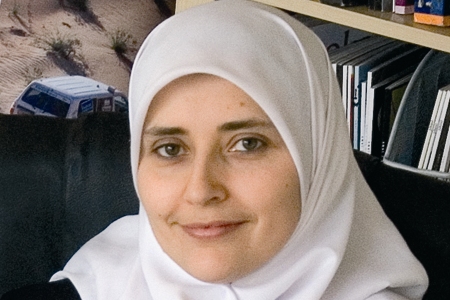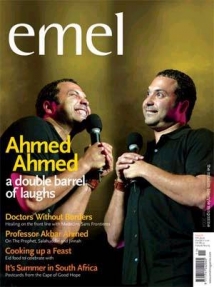
Change in an Ever-changing World
Issue 8 Nov / Dec 2004
First Published on November/December 2004
To access the issue page, click here
‘Another world is possible.’ The slogan shouted out at me from posters and t-shirts at this year’s European Social Forum which took place in London. I was attending this ostensibly left-wing gathering to address a plenary on Muslims in Europe. The four words struck a cord. Indeed when you look at the world today if you didn’t believe that another world was possible you would go mad with misery. But how to achieve another world? How to effect change against the forces on all sides who seem bent on destruction?
There is a verse in the Qur’an about change. It reads: ‘God does not change people’s condition unless they change their inner selves.’ (13:11) That seems pretty bleak. God, the All Powerful, capable of any act, capable of effecting any change, will not change our condition until human beings change their ‘inner selves.’ There are moments here that I could, as Shakespeare put it, ‘trouble deaf heaven with my bootless cries,’ and wonder why on earth God made us like He did, capable of spreading chaos on Earth.
And yet this is the nature of our existence. When God created us the angels were, to put it mildly, concerned. ‘Will You place on the Earth one who will spread corruption and shed blood, whereas we extol Your limitless glory, praise You and hallow Your name?’ they enquired. When I look at some of the situations in the world I think I can imagine a little of the commotion amongst the angels. And yet God’s response was unequivocal, ‘Verily, I know that which you do not know.’ (2:30)
So there is a reason why we are here on Earth. Although we are capable of spreading corruption and bloodshed, we are also capable of great beauty. Our free will is something of value and whilst it is the cause of chaos, it is also the cause of greatness. Which brings me back to changing our inner selves. Ultimately, God is giving us our free will and asking us to utilise it to affect positive change. We have been placed as ‘vicegerents’ on Earth and it is our task to take that responsibility seriously.
Individuals can affect change. Women's Clothing Indeed, if we are to take the Qur’an at its word then change begins in the hearts of individuals and moves from there. But does affecting change mean more piety, more mosque attendance? There is certainly nothing wrong with either, but our mosques are bursting at the seams, yet where is the change? Muslims are so many in numbers, but it seems sometimes that we are as the Prophet described, “froth on the top of the sea.” Relative to our numbers, I find myself asking 'what are we contributing, what are we changing?'
If we need to change ourselves what is it about ourselves that needs changing? I don’t have the answers, but the questions are a good place to start. We are not short on prayers, piety or pilgrims. What we need is to direct that religiosity, which feeds the inner souls of individuals, and channel it so that it brings justice and beauty to society.
One of the key things which comes across in this issue of emel is people making a difference in small ways. Be it the aid worker in the Sudan or the reformed prisoner helping to mentor young offenders, you see people affecting change for the better. Another world is possible, but we have to work for the world we want.
Bookmark this |
|
Add to DIGG |
|
Add to del.icio.us |
|
Stumble this |
|
Share on Facebook |
|
Share this |
|
Send to a Friend |
|
Link to this |
|
Printer Friendly |
|
Print in plain text |
|


Comments
0 Comments